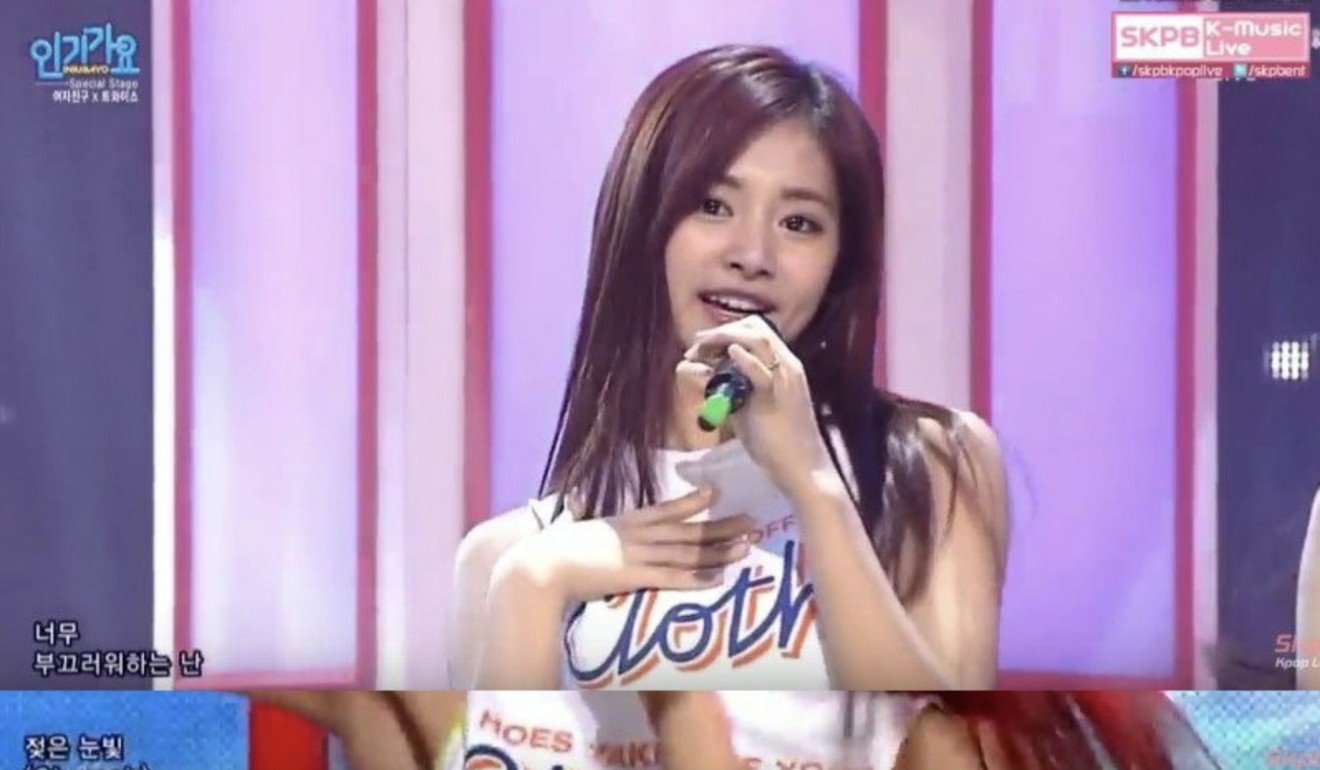
After Melania Trump fashion flare-up, five more slogans on clothing that caused offence or controversy
US first lady was accused of insensitivity and ignorance for wearing a jacket emblazoned with the words I Really Don’t Care. Do U? when she flew to meet detained immigrant children. She’s not the first public figure to commit a fashion faux pas
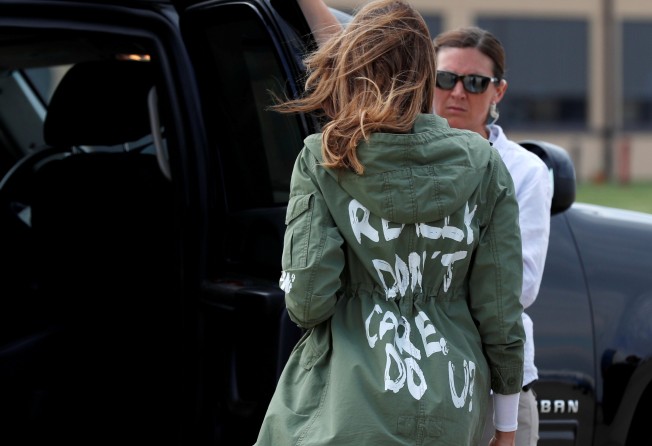
Melania Trump stunned the world with her decision to wear a jacket emblazoned with the words “I REALLY DON’T CARE. DO U?” on her way to visit immigrant children at a detention centre on the US-Mexico border on Thursday.
It drew widespread criticism, with many believing the message was directed at migrants.
While Trump’s spokeswoman said that “there was no hidden message” in her clothing choice, US President Donald Trump contradicted that and said in a tweet that the slogan “refers to the Fake News Media”.
Slogans on clothes have raised a few hackles in the past. Here are five examples:

Strange and even offensive English slogans on T-shirts can be a common sight in Asia because many lack the ability to understand the messages. But a similar mishap sparked controversy when Chou “Tzuyu” Tzu-yu, a Taiwanese singer and member of the Korean girl group Twice, wore a cropped vest with the slogan “Hoes Take Off Your Clothes” during a performance in 2016.
She was singing and dancing on a television show with eight other band members, who were all dressed in T-shirts with various slogans including “I love beer” and “carbs”. Fans and internet users criticised the clothing choice of Chou, who was only 16. Twice’s agency JYP Entertainment made an official apology in the end and said they “were unaware of the message written on the T-shirt”.
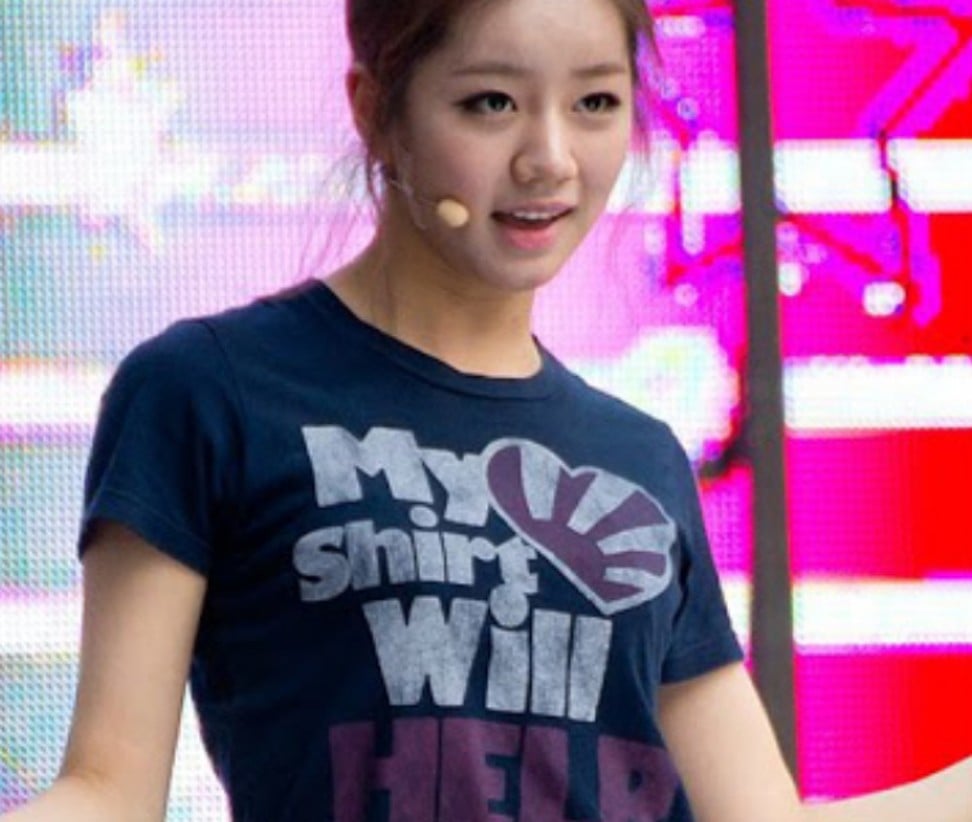
Many people in China and South Korea see Japan’s Rising Sun flag as offensive and suggestive of imperialism, because it was used by Japanese military during the second world war. A number of Chinese and Korean celebrities have got into trouble by wearing clothes with patterns resembling the flag – a red circle surrounded by red and white stripes.
Hyeri, a member of the Korean girl group Girl’s Day, wore a T-shirt with the flag’s pattern and a slogan saying “My Shirt Will Help Japan” on stage, which was a gift from a Japanese fan. She later apologised for the decision.
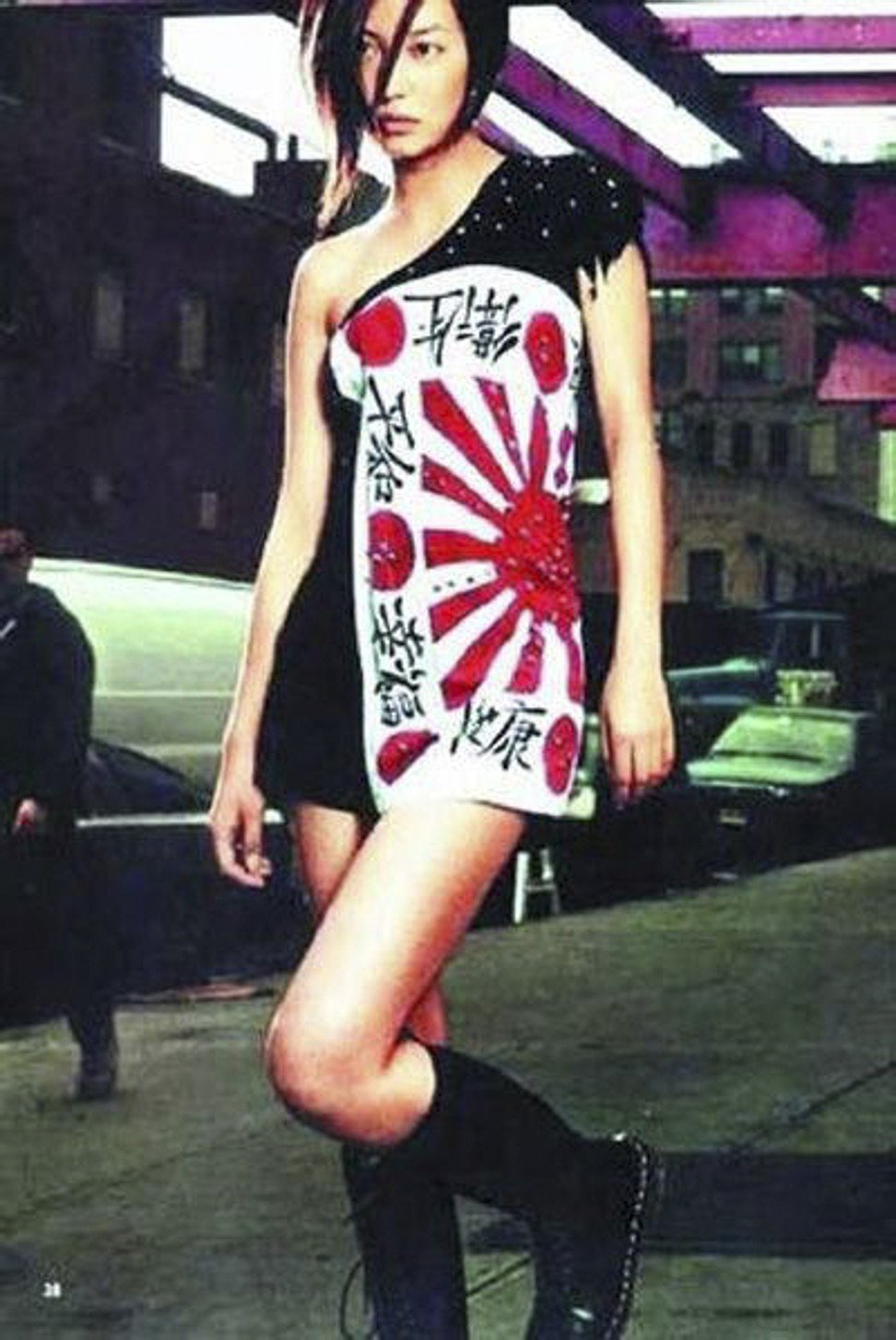
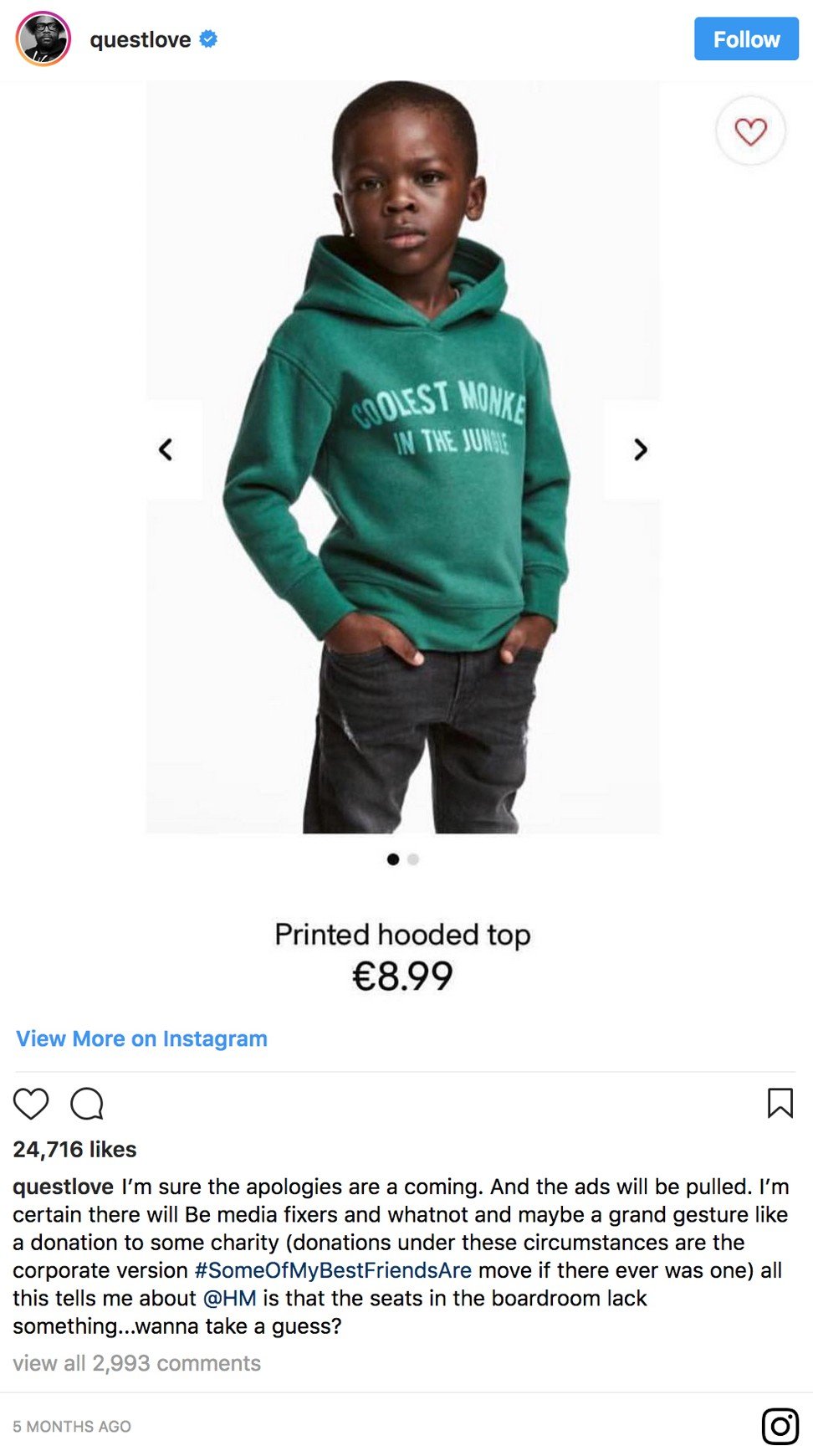
H&M’s “Coolest Monkey in the Jungle”
High-street fashion chain H&M came under fire in January after the image of a black child model wearing a hoodie bearing the phrase “coolest monkey in the jungle” circulated on the internet.
A hoodie of the same design bearing the words “official survival expert” was modelled by a white child.
Many accused H&M of creating an inappropriate representation of black children, and the brand eventually pulled the image from its website and apologised.
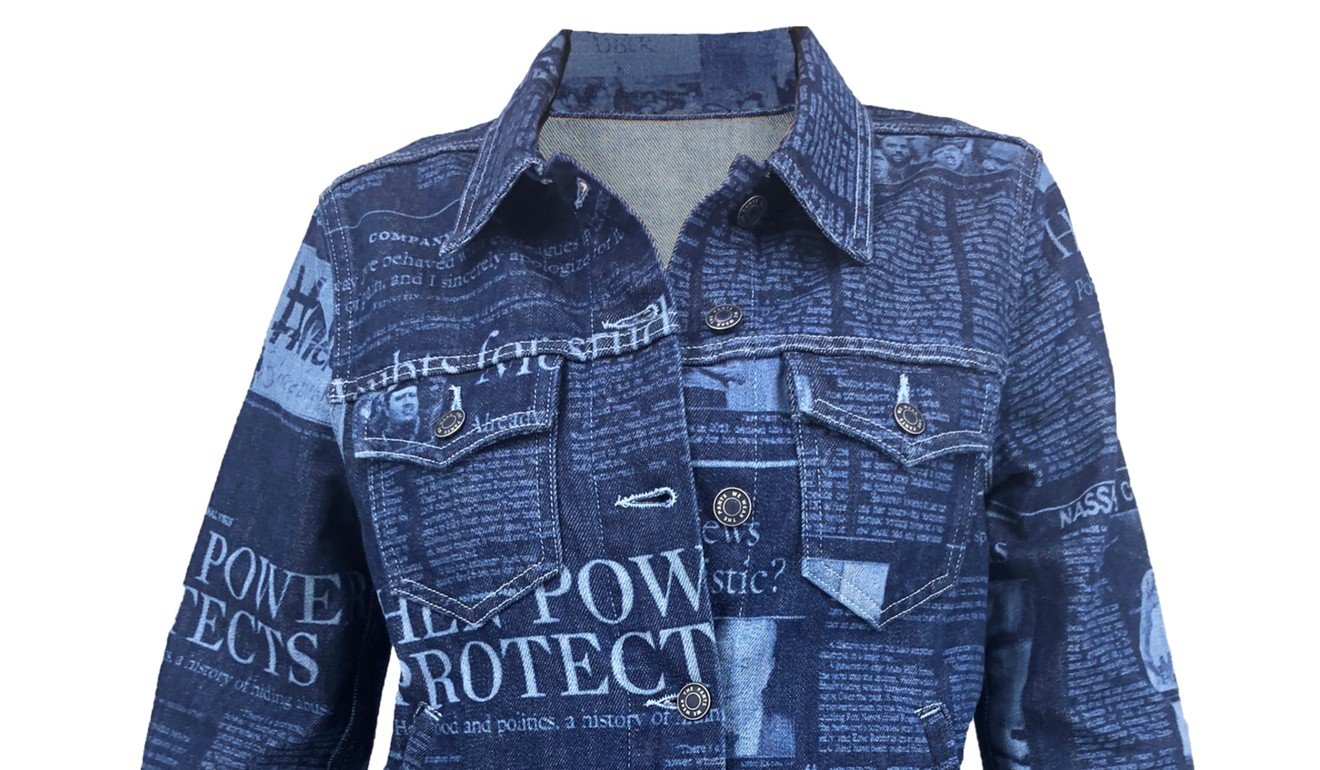
Designing clothes with a political message can be tricky, and the creators of a denim line called “We Wear the Pants” learned it the hard way. The collection, which debuted in January to support the #MeToo movement, includes a pair of US$250 denim jeans and a US$375 jacket laser-engraved with news headlines and reports of sexual harassment.
Even though 10 per cent of the sales are donated to support victims of sexual abuse, critics said it was unlikely to create any meaningful impact because the women most vulnerable to abuse are unlikely to afford it. Others also criticised the design because it could lead to victims having flashbacks of their attacks.
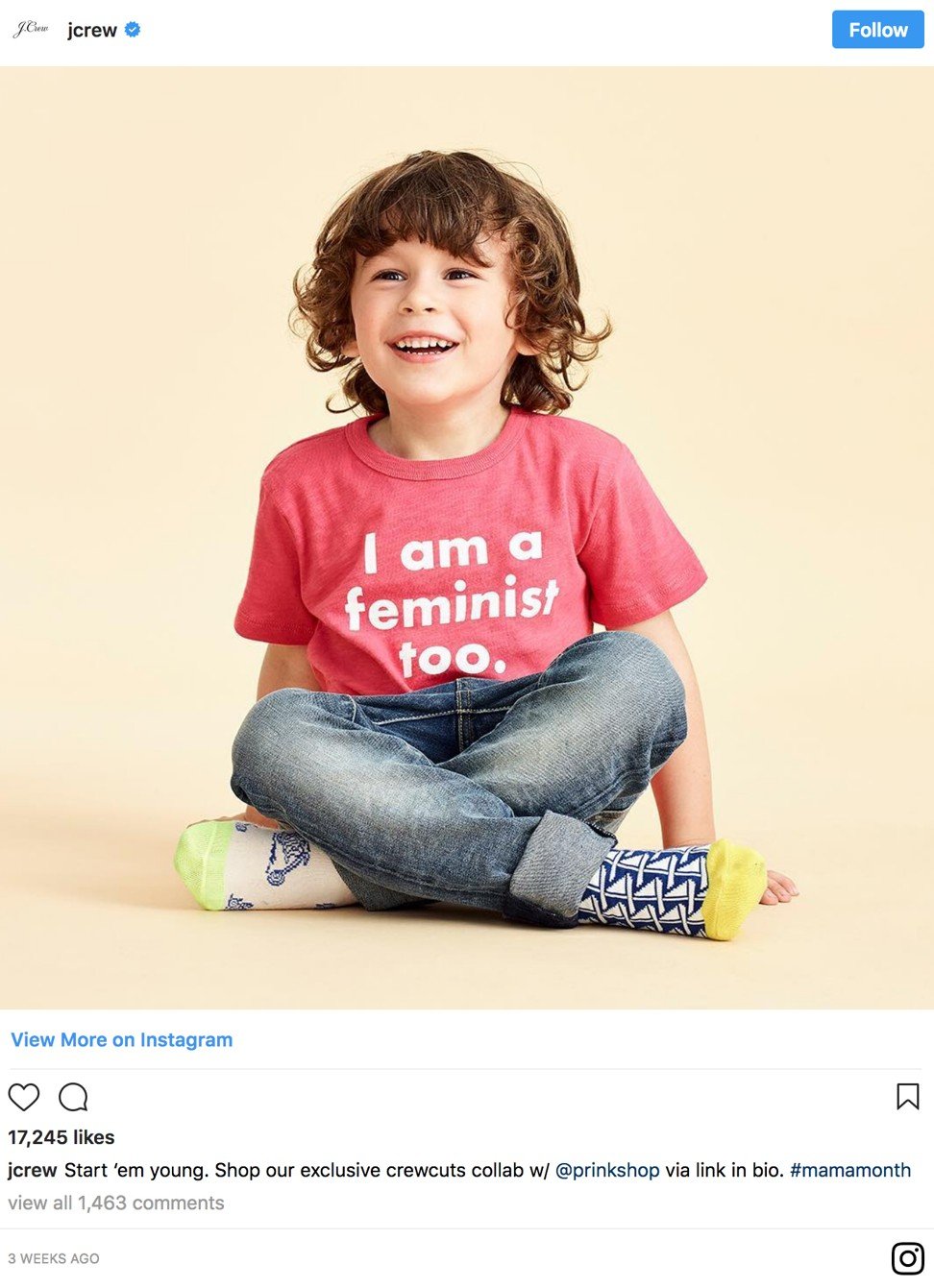
J. Crew’s feminist T-shirt for children
American fashion brand J. Crew set off a heated debate online after releasing a boys T-shirt with the slogan “I am a feminist too” earlier in June. Despite the positive message, many are concerned with the fact that the T-shirt is effectively expressing political views on behalf of the children, who are unlikely to understand the meaning of them. But supporters say they are willing to raise their sons as feminists and see no problem in the slogan. J. Crew has defended the product.